From September 26 to 27, 2025 in Tianjin, the Energy Internet Committee of the Chinese Society for Electrical Engineering (CSEE) held its Annual Conference on Academic Exchange under the theme “Leading Energy Internet Technology, Co-Creating the Future through Cross-Boundary Integration.” Attendees included Chen Weijiang, Senior Advisor of the State Grid Corporation, Chair of the Committee, and Academician of the Chinese Academy of Sciences; Wang Chengshan, Professor of Tianjin University and Academician of the Chinese Academy of Engineering; Professor Kang Chongqing of the Department of Electrical Engineering and Applied Electronics (EEA), Tsinghua University and Deputy Secretary-General of CSEE; Qian Qinglin, Chairman of State Grid Tianjin Electric Power Company; committee members; and nearly 200 scholars, experts, faculty, and students from domestic universities, research institutions, and enterprises. The opening ceremony and keynote report sessions were hosted by Professor Lu Chao of EEA, Deputy Chair of the Committee.
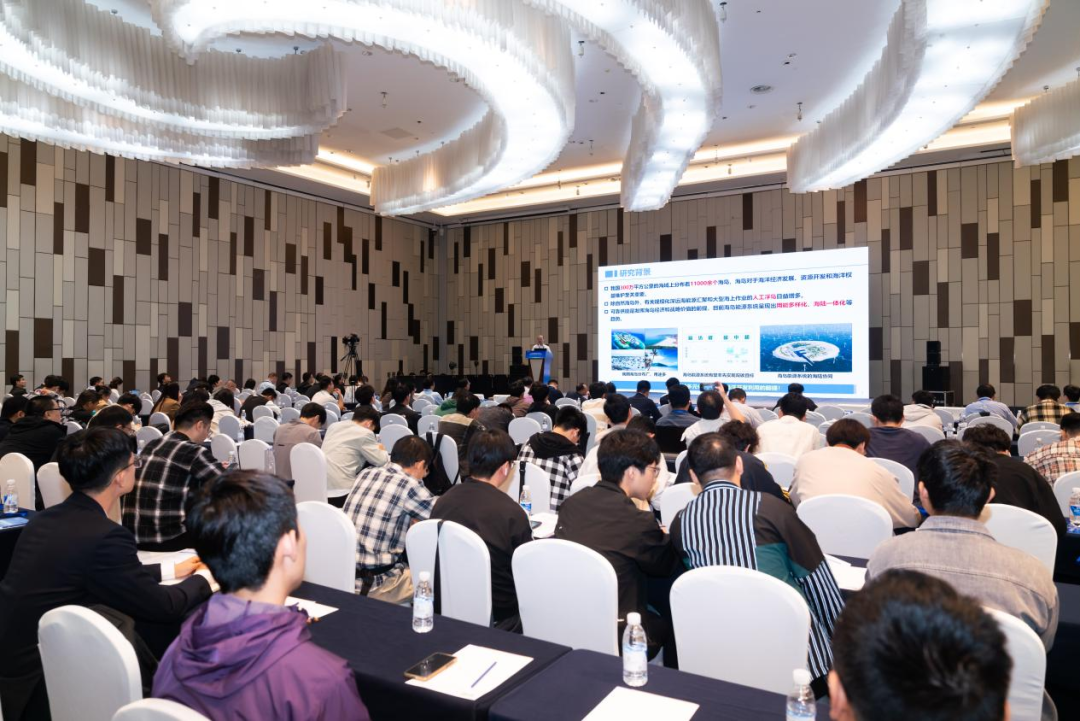
Conference Venue
Chen Weijiang stated that the energy internet, as an important driver for implementing the energy revolution and promoting energy transition, has continuously demonstrated new value in increasing the share of renewable energy, improving overall energy efficiency, facilitating energy market openness, and promoting industrial upgrades. In recent years, the Committee has gradually fostered a more open, pragmatic, and collaborative academic atmosphere through academic conferences, seminar series, and cross-disciplinary exchanges, injecting new vitality into serving national strategies. He expressed the expectation that the Committee will continue to engage in in-depth exchanges and intellectual collisions on frontier directions and hot topics in the field, providing new ideas and solutions for the start of the 15th Five-Year Plan and promoting high-quality development of the energy internet.
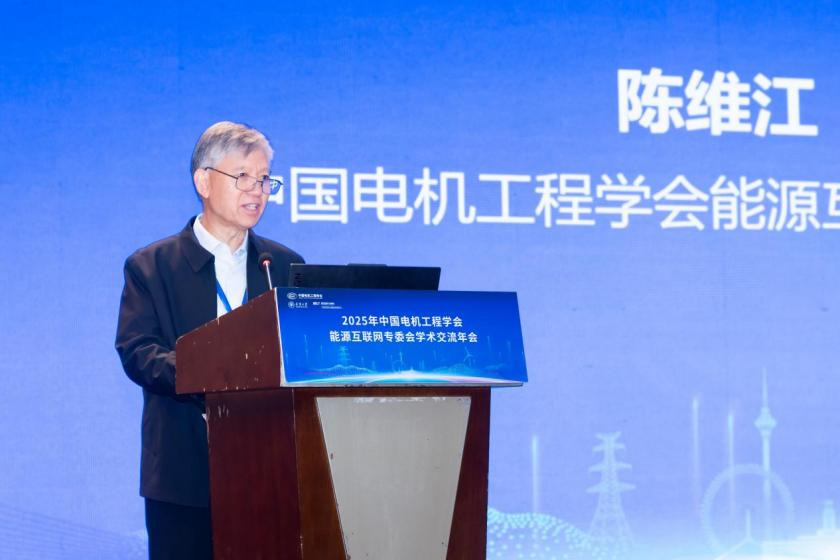
Speech by Academician Chen Weijiang
Wang Chengshan emphasized that the energy internet is a very promising direction, but there remains substantial work to be done on how to achieve efficient, low-carbon, and interactive operation of large-scale integrated electricity, heat, and cooling systems. The National Energy Administration has called for each province to apply for zero-carbon park construction, while also considering the proportion of green electricity and how to address the cooling and heating utilization of integrated energy terminals. Therefore, this field will remain an important focus area for the Committee. He hopes the Committee will continue to explore and contribute significantly to the nation’s energy transition.
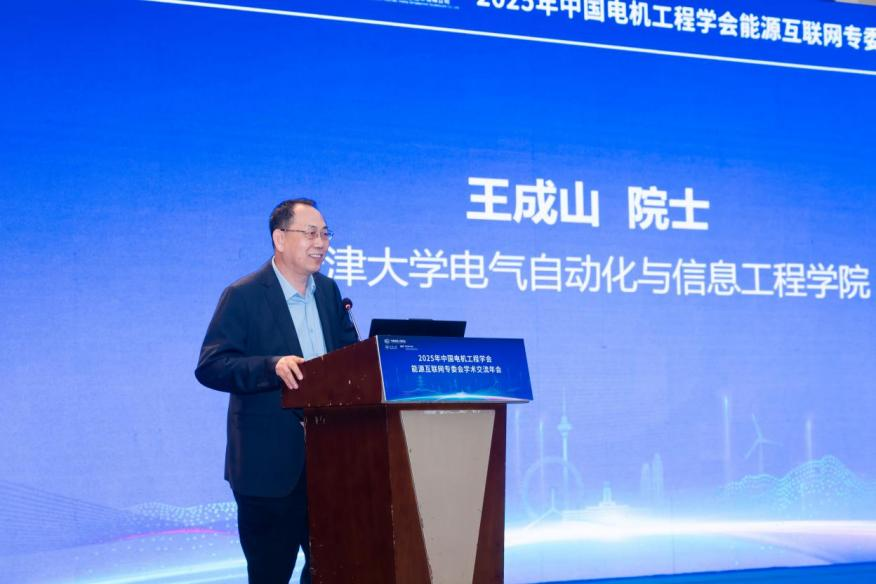
Speech by Academician Wang Chengshan
Kang Chongqing noted that the energy and power industry is undergoing profound transformation. High-penetration renewable energy integration, widespread application of distributed resources, and accelerated development of emerging technologies such as AI present new challenges to the safe, stable, and efficient operation of power systems, while also creating new opportunities for the energy internet. He encouraged committee members and experts to use the conference as a platform to delve into frontier issues, exchange the latest research results, and promote deep integration of industry, academia, and research, providing strong support for continuous innovation and sustainable development of the energy internet.
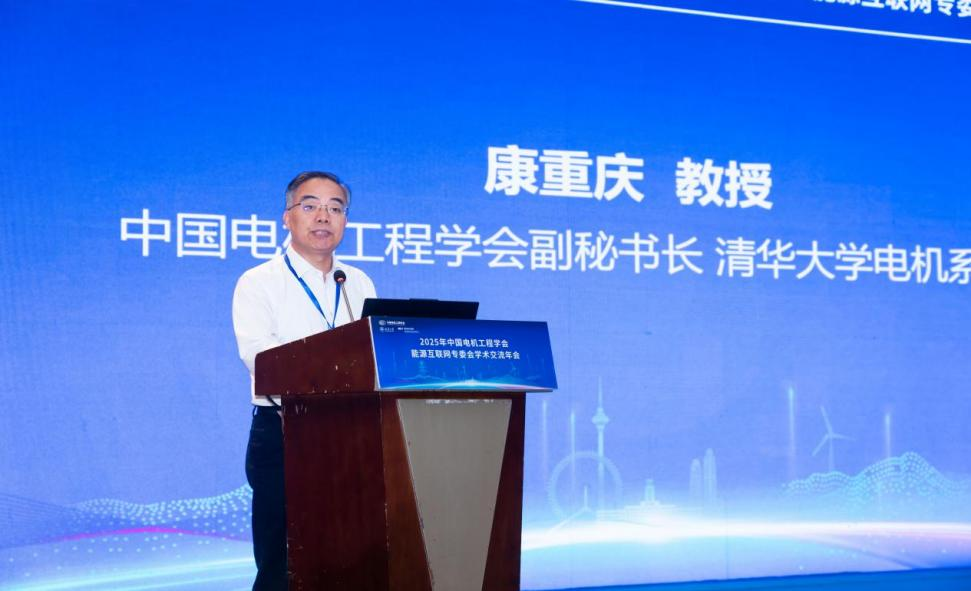
Speech by Professor Kang Chongqing
During the conference, Professor Sun Kai of EEA introduced the iEnergy Journal (Electric Power and Energy Journal). This fully open-access international English-language journal is hosted by Tsinghua University, published by Tsinghua University Press, with IEEE responsible for international dissemination, and academic support provided by Tsinghua EEA. Professor He Jinliang serves as editor-in-chief, and the journal has been indexed in multiple well-known academic databases.
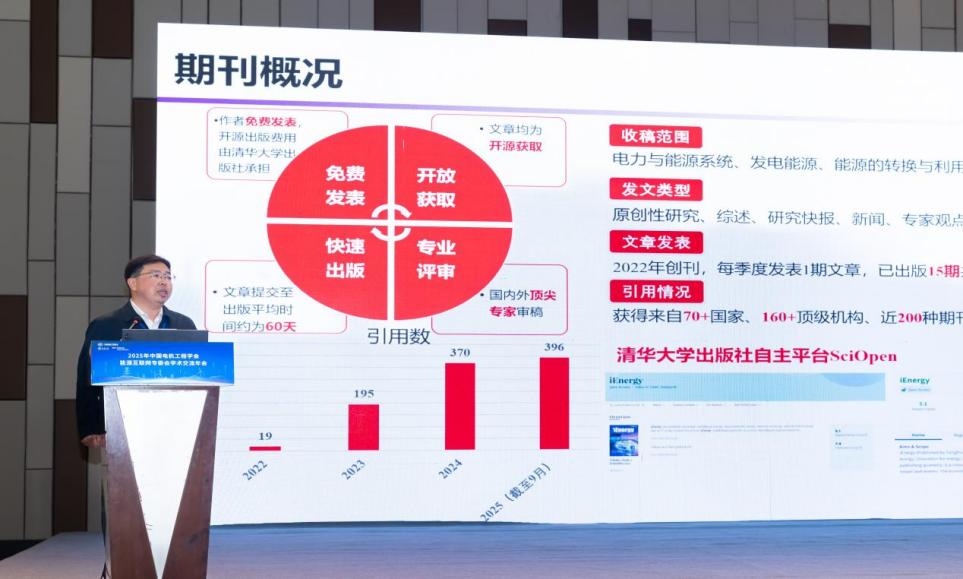
Introduction to iEnergy Journal by Professor Sun Kai
In the keynote report session, Professor Jia Hongjie of Tianjin University presented “Analysis of Industrial Load Flexibility on the User Side (Virtual Energy Storage) under the New Power System,” sharing the substantial potential for industrial demand-side regulation and the high-quality flexible resources in new power systems, highlighting multi-energy microgrids as critical technical support, alongside suitable market mechanisms and policy guarantees.
Professor Li Weixing of Dalian University of Technology presented “Key Technologies for Planning and Operation of Integrated Low-Carbon Island Energy Systems,” proposing that diversified island energy supply is a prerequisite for marine development, aiming to establish an internationally leading “Green Smart Energy Island” test, validation, and digital twin base, providing innovative solutions for integrated island energy systems across sea, land, and air.
Associate Professor Zhang Ning of Tsinghua University presented “Data-Driven Safety and Stability Rule Learning and Embedding for Power System Operation Planning,” emphasizing the challenges posed by high renewable penetration on operation planning and proposing data-driven methods for extracting accurate and reliable safety and stability rules.
Associate Professor Li Meng of Beijing Jiaotong University presented “Key Technologies for DC Grid Relay Protection,” sharing studies on fault analysis, isolation, and recovery in DC grids, and outlining intelligent protection principles including self-tuning settings, self-evolving parameters, and self-verifying measurement errors, as well as key protection technologies for new scenarios and cable pre-protection.
These keynote reports closely aligned with frontier topics and critical technologies of the energy internet, providing participants with insightful research results and references.
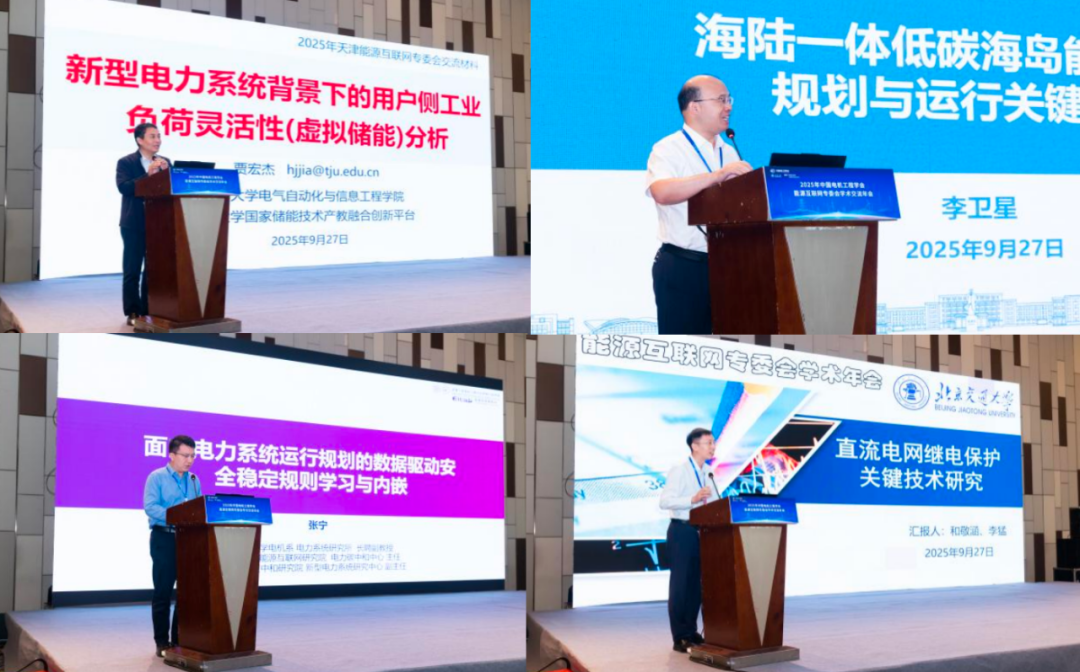
Keynote Reports
The Young Scholars Academic Exchange session was hosted by Professor Zhang Pei of the School of Electrical Automation and Information Engineering, Tianjin University. Associate Professor Lin Junjie (Fuzhou University), Associate Professor Zhao Bochao (Tianjin University), Associate Professor Huang Shengjun (National University of Defense Technology), and Senior Engineer Liu Juanyu (Tianjin Puxun Electric Power Information Technology Co., Ltd.) presented on “Real-Time Operation Sensing and Optimization of Urban Rail Flexible Traction Power Supply Systems,” “Non-Intrusive Load Monitoring Technology Empowering Demand-Side Resource Utilization,” “Optimization of Node Resilience in Distributed Power Supply Systems,” and “Precise Calculation Methods and Applications of Electric-Carbon Factors,” respectively, demonstrating the innovation and academic commitment of young scholars.
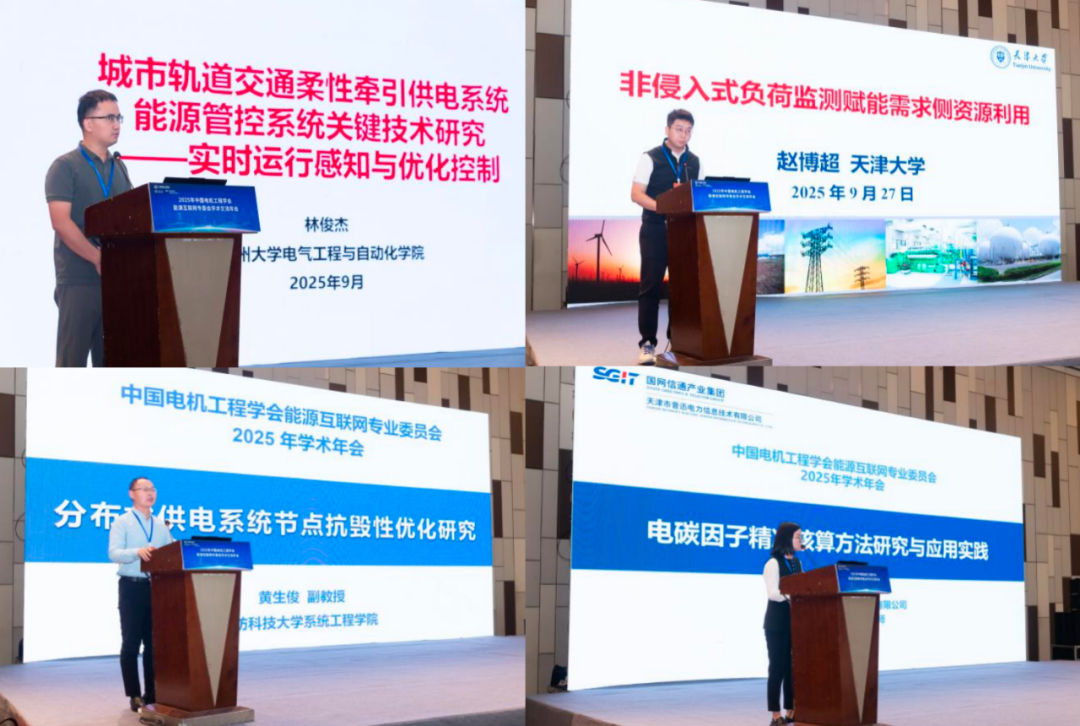
Young Scholars Reports
To further showcase interdisciplinary research achievements and broad prospects, the conference simultaneously held two thematic forums: “Energy-Transport Integration” and “Artificial Intelligence + Energy Internet,” hosted by Professor Mu Yunfei and Associate Professor Zhao Bochao of Tianjin University, respectively.
The Energy-Transport Integration forum invited Professor Mu Yunfei, Professor Wang Jianxiao (Peking University), Professor Xiang Yue (Sichuan University), and Associate Professor Wang Ke (Southwest Jiaotong University) to present on “Quantification and Interaction Techniques of EV Flexibility from the Perspective of Energy-Transport Integration,” “Low-Altitude Economy and Air-Space Energy Technology Outlook,” “Vehicle-Grid Interactive Operation Mechanisms for Promoting Clean Energy Utilization,” and “Key Technologies for Traction Power Supply in Heavy-Load Rail Energy-Transport Integration.”
The Artificial Intelligence + Energy Internet forum invited Researcher He Guannan (Peking University), Associate Professor Song Meng (Southeast University), Professor Chen Sheng (Hohai University), Associate Professor Ji Wei (Nanjing University), and Professor Zhang Pei to present on “Multi-Scale Fusion Model Construction Methods for Energy Internet,” “Key Technologies and Applications for Urban Building Load Control Ensuring Grid Safety and Efficiency,” “AI-Enabled Vehicle-Station-Grid Efficient Coordination Research,” “AI Empowered Energy Sensing, Prediction, and Decision-Making for Safe and Efficient New Power Systems,” and “Physical-Information Neural Networks for Power Flow Calculation Embedded with Commercial Gradient Methods.”
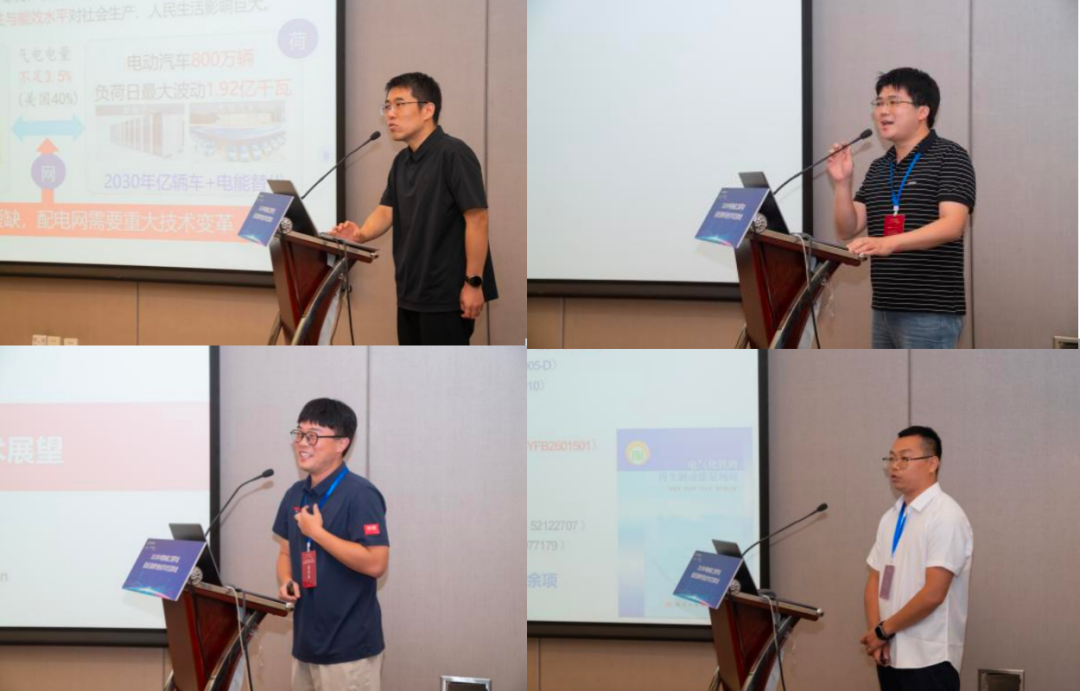
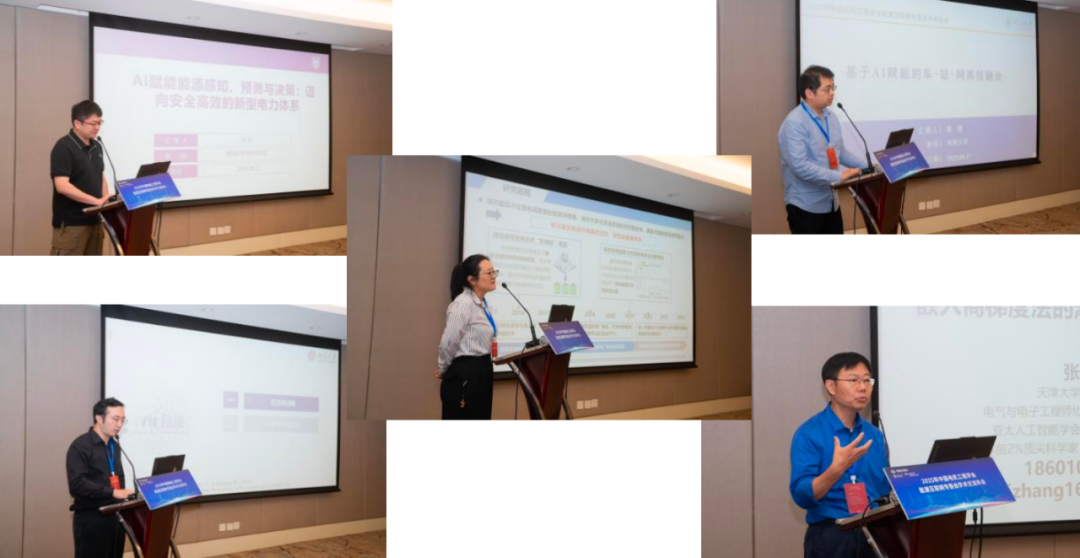
Thematic Forum Reports
During the conference, the Committee held its annual work meeting and organized participants to visit the Jinghai Line Flexible DC Power Supply System Demonstration Project in Tianjin for investigation and exchange.

















 News & Events
News & Events